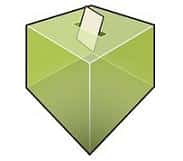Before entering fully into the meaning of the term representative democracy, we are going to proceed to discover the etymological origin of the two words that give it shape:
-Democracy, first of all, derives from Greek. Specifically, it is the result of the sum of three different parts: the noun “demos”, which means “people”; the word “krátos”, which is synonymous with “government”; and the suffix “-ia”, which is used to indicate “quality”. Therefore, we can establish that democracy means “the government of the people.”
-Representative, secondly, comes from Latin, exactly from “representativus”, which is synonymous with “that symbolizes”. It has been formed from the union of these components: the prefix “re-”, which means “repetition”; the particle “prae-”, which is equivalent to “in front”; the verb “esse”, which can be translated as “to be”; and the suffix “-tiva”, which is used to indicate “passive or active relationship”.
The term democracy refers to the form of government that grants citizens the exercise of political power .
 There are different types of democracy. When the people exercise power without representatives intervening, we speak of direct democracy . On the other hand, when the people govern through representatives elected through periodic and free voting, it is a representative democracy .
There are different types of democracy. When the people exercise power without representatives intervening, we speak of direct democracy . On the other hand, when the people govern through representatives elected through periodic and free voting, it is a representative democracy .
Nowadays, most countries have adopted representative democracy as their form of government. Every certain amount of time, residents participate in an electoral process to elect the officials who are in charge of running the government. Heads of state, deputies, senators, etc. emerge from the elections.
There are those who defend that representative democracy is the best option, the most effective and even efficient, when it comes to getting society on the right track, having as its pillars the rights and duties of citizens.
In order to ensure that the power that the representatives of the people have is unlimited and not subject to the wishes of the people, there are various measures or resources. We are referring not only to the constitution but also to an independent judiciary and the Chambers.
In a direct democracy, the citizens themselves make decisions linked to the State through tools such as plebiscites, assemblies and referendums. In a representative democracy, each citizen chooses from among the candidates the one they consider will best represent their interests.
It is common, however, for a representative democracy to enable certain tools of direct democracy. The president of a nation , in this framework, can call a plebiscite to consult the population on a matter before making a decision. Colombian President Juan Manuel Santos did this in 2016 when he promoted a binding plebiscite so that people could approve or reject the signing of peace agreements with the guerrillas. Finally the “No” to the agreements won. Thus, Santos - president of a representative democracy - made use of a mechanism of direct democracy.
